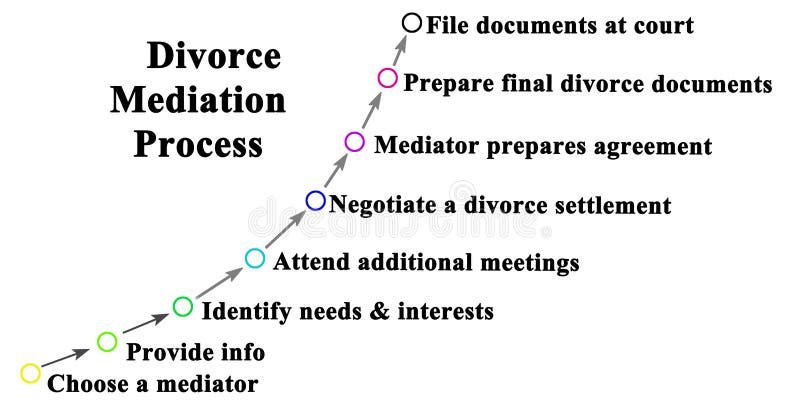About Family Mediation
With the assistance of an impartial third party, families can negotiate future arrangements for their children through the mediation process. The mediator does not tell the parties what to do but can assist them in reaching their own agreements amicably while working to improve their communication.
What is going to happen during the mediation?
The mediator will assist you and the other parent in working through all of your issues, considering your options, determining whether they would work well in practice, and settling on the best course of action. If you are uncomfortable being in the same room as the other parent, the mediator can arrange shuttle mediation. In shuttle mediation, the disputing parties are separated into separate rooms, and the mediator shuttles between them in an effort to support them achieve an agreement. If an agreement has been reached during mediation, the mediator will compose a "memorandum of understanding" so that all parties are aware of the agreements.
Are agreements reached through mediation legally enforceable?
The agreements achieved through mediation are not legally binding in the sense that they are not enforceable in court. However, the agreement can be used in court if a Consent Order is sought at a future date.
What advantages does mediation offer?
When parents have difficulty agreeing on suitable arrangements for their financial situation and children after a family breakup, mediation is recommended. There are a number of advantages to attending mediation, including:
giving you more control over what decisions are made in relation to your finances and children, as opposed to applying to the courts;
providing a less stressful way of dealing with sensitive matters;
improving communication and helping you to sort out future arrangements;
allowing arrangements to be reviewed and changed more easily, as long as both parties agree; and
providing a quicker and less expensive way to resolve disputes.
What is a Mediation Information and Assessment Meeting (MIAM)?
A Mediation Information and Assessment Meeting (MIAM) is the initial appointment with a trained family mediator to determine whether your issues can be resolved outside of court and whether mediation is an effective option.
What could I expect from my mediator?
A family mediator must maintain impartiality and avoid any potential conflicts of interest. This means that a mediator cannot engage in mediating a dispute in which they have obtained relevant information about the parties. In addition, a mediator must maintain impartiality regarding the mediation's outcome. They may not attempt to impose their desired outcome or exert improper influence on any of the parties.
You must also expect the mediator to keep all information received during the mediation session confidential. Without the consent of both parties, the mediator is prohibited from disclosing any information to the court. The mediators may only divulge information when severe allegations of harm to a child or adult are present.
Mediation is a voluntary process, and any mediation session can be suspended or terminated if it is determined that the parties are unwilling to participate fully. Additionally, mediators must encourage the parties to consider the desires and emotions of the children.
How long does mediation generally last?
Mediation may continue as long as it meets the needs of each individual party. The duration of the first meeting is approximately 45 minutes. Sessions last on average between one and two hours, subject to the complexity of the situation.
Do I have to go to mediation?
Since April 2014, anyone applying to the courts for assistance in resolving disputes about children or finances will be required to attend a meeting Mediation Information Assessment Meeting first. This includes any applications for:
Child Arrangements Order
Specific Issue Order
Prohibited Steps Order
Parental Responsibility Order
An order appointing a Child’s Guardian
Removal from Jurisdiction Order
Special Guardianship Order.
Legal exemptions
Part 3 of the Family Procedure Rules contains a list of mediation exemptions that can be found on forms C100 and FM1.
Exemptions include:
when the relationship involves domestic abuse; when the child is the subject of a child protection plan or a section 47 investigation;
when the situation is urgent, i.e. there is an imminent risk of harm to the child;
when mediation has been attempted within the past four months;
and when the applicant does not have adequate contact information for the respondent.
Mediation Information and Assessment Meetings (MIAMs) and mediation can both take place online.
Mediation is not legally binding but offers many benefits as the couples keep decision-making in their own hands. You can start mediation in a few days. Court can take months. For children matters mediation is a much more practical way to make arrangements.
Call us today to arrange a meeting or request a callback





